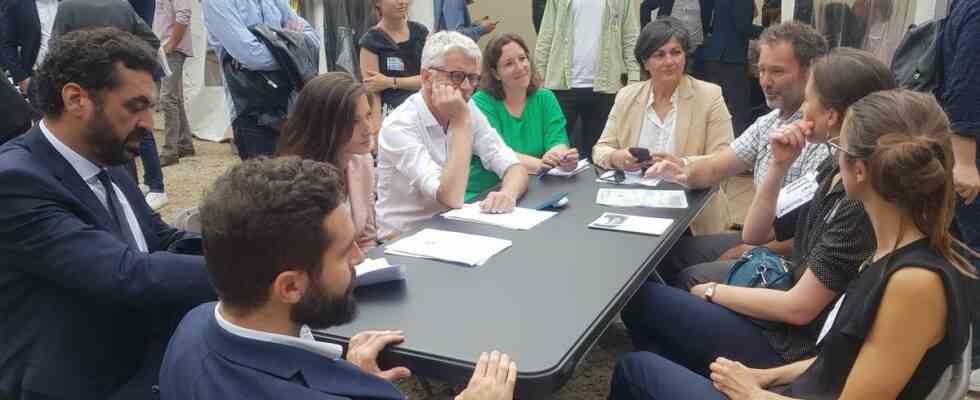A deputy, Danielle Simonnet, Monday, for the first day. Fifty-seven, Tuesday. And 97 this Wednesday. A total of 154 deputies have sat down over the past three days, under the barnum installed close to the National Assembly, where 40 French scientists, climate and biodiversity experts were waiting for them.
On the program: thirty minutes of accelerated training to get up to speed on scientific consensus on climate and biodiversity, discussed the main courses of action, and the main files to come, on these two issues, on the table of The national assembly.
Not the 289 targeted
This idea, presented as a world first by its organizers, first germinated in the minds of former deputy Mathieu Orphelin and Christophe Cassou, climatologist at the CNRS and author of the Intergovernmental Panel on Climate Change. (IPCC). They were joined by these forty scientists and “For an ecological awakening”, a collective of graduates and young professionals engaged in diplomatic issues.
The objective, Monday, was to sensitize an absolute majority of deputies over these three days. So 289. The account is not there, “but 154 deputies, or 27% of the National Assembly, it is all the same very good”, slips Matthieu Orphelin.
In total, 80 elected members of Ensemble!, a coalition of political parties of the presidential majority created for the last legislative election, went to meet the scientists,” explains the former deputy. The Nupes were 70. On the other hand, there was only one elected LR to make the trip. No more on the National Rally side. “Only one deputy told me that he had learned nothing by coming,” continues Matthieu Orphelin, who prefers to note that “some stayed for more than an hour or even came twice”.
A first that calls for sequels
This operation was to be considered as a “first aid training”, the beginning of something bigger, announced from the outset, Monday, the organizers. Matthieu Orphelin confirms that he does not want to stop there this Wednesday evening and mentioned several possible follow-ups: “annual upgrades for parliamentarians and collaborators, training for ministerial cabinets, training by group or by commission, in-depth examination of certain points”. “Civil society has also favored this type of training,” he adds.

